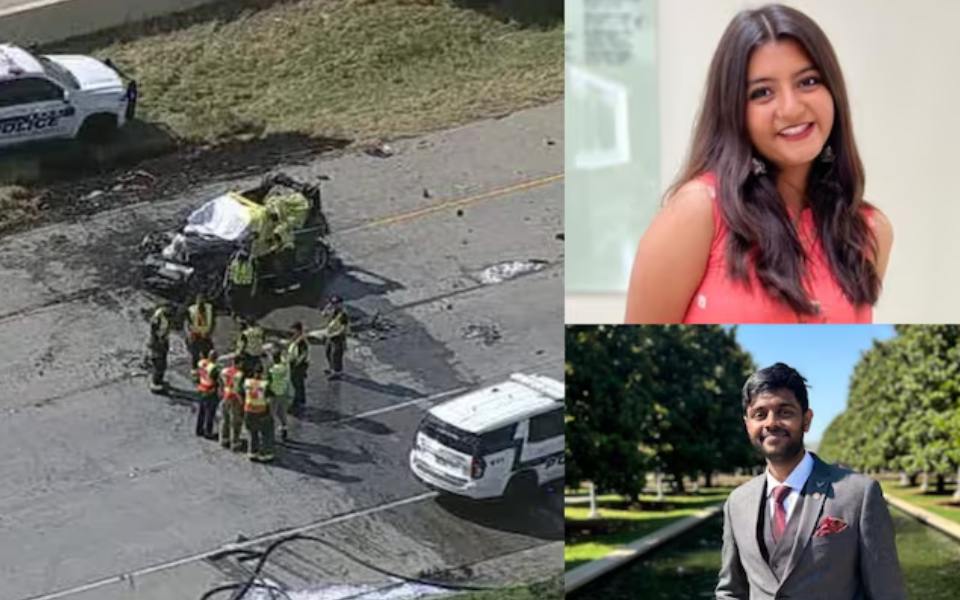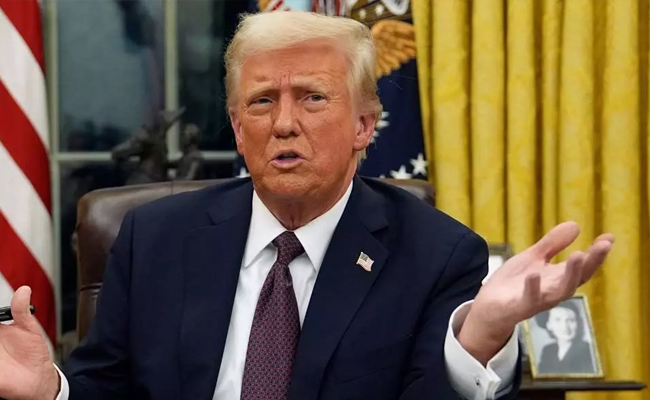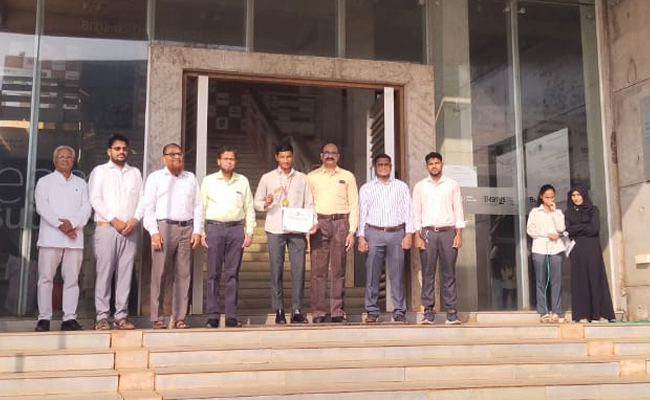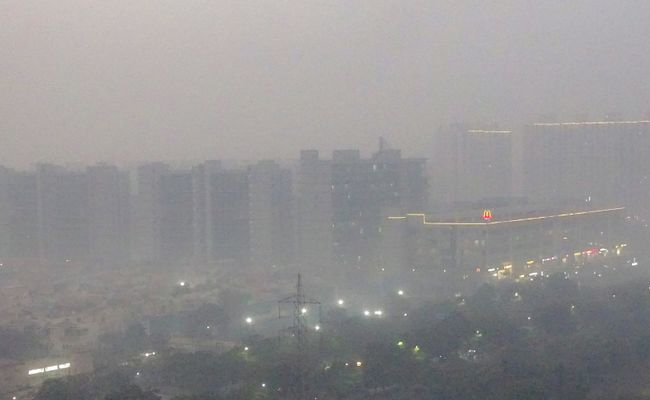Texas: Four Indians, who were carpooling and heading to Bentonville, tragically lost their lives when their SUV burst into flames after a multi-vehicle collision in United States’ Texas. The accident occurred on August 30, 2024, when a speeding truck rammed into their SUV. The bodies of the victims were charred.
The victims have been identified as Aryan Raghunath Orampati and Farooq Shaik from Hyderabad, Lokesh Palacharla of East Godavari in Andhra Pradesh, and Darshini Vasudevan from Tamil Nadu.
Mastan Vali, Farooq Shaik’s father, said that his son had been living in the US for three years and had recently completed his M.S. course, as reported by NDTV. He added that his daughter lives there and is handling the situation.
Aryan’s family had recently attended his convocation at the University of Texas in Dallas. Despite their wishes for him to return home soon, Aryan intended to work in the US for a while longer. He and Farooq were on their way to Bentonville after visiting a cousin in Dallas. Lokesh was heading to Bentonville to see his wife, and Darshini was travelling to visit her uncle while pursuing her master’s degree at the University of Texas.
The families are awaiting confirmation from US authorities, who are conducting DNA fingerprinting and examining dental and bone remains to identify the victims. “DNA fingerprinting will be done to identify the bodies, and the samples will be matched with the parents,” a local authority stated.
Let the Truth be known. If you read VB and like VB, please be a VB Supporter and Help us deliver the Truth to one and all.
New York/Washington (PTI): US President Donald Trump has repeated his claim of resolving the India-Pakistan conflict and asserted that Islamabad's leadership credited him for saving millions of lives.
"We stopped a potential nuclear war between Pakistan and India. And the head of Pakistan, a highly respected General, he's a Field Marshal and also the Prime Minister of Pakistan, said President Trump saved 10 million lives, maybe more...,” Trump said Monday.
He made these remarks at Mar-a-Lago, Florida, flanked by Defence Secretary Pete Hegseth, Navy Secretary John Phelan, and Secretary of State Marco Rubio.
“You know, eight planes were shot down. That war was starting to rage, and he actually said the other day that President Trump saved 10 million lives, maybe more. So we solved all these wars. The only one I haven't solved yet is Russia, Ukraine,” he said.
ALSO READ: Man murders colleague, dumps body in water tank in Palghar; held
Since May 10, when Trump announced on social media that India and Pakistan had agreed to a “full and immediate” ceasefire after a “long night” of talks mediated by Washington, he has repeated his claim over 60 times that he “helped settle” the tensions between the two neighbours.
New Delhi has consistently denied any third-party intervention.
India launched Operation Sindoor on May 7, targeting terror infrastructure in Pakistan and Pakistan-occupied Kashmir in retaliation for the April 22 Pahalgam attack that killed 26 civilians.
India and Pakistan reached an understanding on May 10 to end the conflict after four days of intense cross-border drone and missile strikes.





